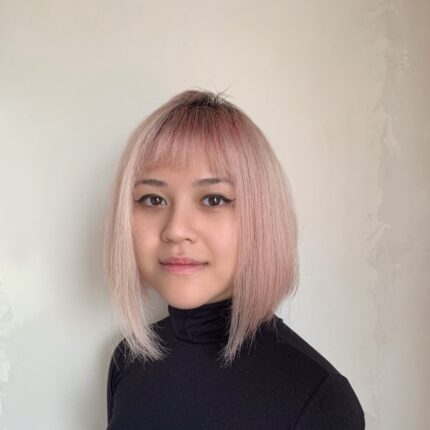During the pandemic, the response of creative higher education institutions to student complaints has signalled a central dominant position – that studio-based courses without access to studios are somehow of equal pedagogic and financial value to the same courses pre-crisis.
With zero or restricted access to “world-leading” equipment, facilities and highly skilled technicians, we’ve been told that the “quality” of our education has not been affected. Pause or Pay UK, a student campaign group representing thousands of students across 35 different institutions, fundamentally disagrees.
For the majority of studio-based learners, the pandemic has clarified something that ought to have been obvious – painting in our spare cupboards cannot replace working in our studio spaces, gilding metals in our bathrooms does not match access to specialist equipment, and countless zoom calls are no substitute for the physical and emotional skills developed while creating collaborative physical projects with fellow students.
Everyone involved may feel they have done their best. But their best is neither equivalent nor good enough.
Our education
Art and Design education is as much about occupying a studio space with other creative individuals and their work, and the resultant invaluable peer-to-peer learning and network building as it is about the teaching we receive from tutorials and lectures.
And Art and Design education is as much about building a portfolio of work that can be exhibited or performed as it is about a degree certificate, graduation ceremony or classification at the end.
That’s why a focus from OfS, QAA, DfE or our institutions on online teaching, assessment or certification doesn’t cut it.
It’s why we’re campaigning for creative higher education providers to provide future alternative access to their facilities (PAUSE), or partially reimburse/compensate our tuition so we can complete our projects externally (PAY).
The continued rejection of our requests, and the doubling down on the logic that “Meeting Learning Outcomes = Fees” makes us question whether decision makers are either oblivious of studio-based students’ educational needs, or are being deliberately obtuse to avoid hard negotiations with the government about a sector-wide bailout.
Runaround now
To raise these issues to try to save and salvage our education, we are now engaged in a number of frustrating and exhausting processes. These include fruitless negotiations with senior managers, internal formal complaints procedures with little recourse to legal rights as “consumers”, and consultation with an adjudicator (OIAHE) which neither has the legal remit to assess the “quality” that Michelle Donelan says is the integral barometer for any potential refund, nor the capability to handle large group complaints.
As we find ourselves stuck in this bureaucratic limbo and bounced around between institutions, government departments and governing bodies, what is strikingly obvious is the general lack of accountability in the sector. The pandemic has hit higher education hard, and students are footing the bill. We have never wanted to be treated as customers, but on the one occasion we want to enact some basic consumer rights, we are being treated as non-consensual donors.
Financially helping students would have been instantly ameliorative for many students, a portion of whom are now having to access food banks as they are ineligible for Universal Credit, while international students are disallowed from working above a set number of hours per week. What we were looking for was support as we called for the bringing forward of 2-year post-study work visas for international students graduating before summer 2021. What we got was paltry “hardship fund”.
To us, the situation is indicative of higher education institutions’ confusing position as at once private and public institutions. The universities’ minister says universities are autonomous, but in turn tell us that they are restricted both practically and financially without government intervention. This public/private confusion leads to lack of accountability, leaving students caught in the middle and, as is always the case, the most vulnerable suffer.
Held to account
Central to universities having increased accountability would be a major overhaul of internal complaints processes and how they are overseen by the OIA. They are currently not fit for purpose as they are non-transparent, weighted in favour of institutions and are used to delay and grind down any complainants rather than act as opportunities for justice and institutional self-improvement. From our members’ experience of launching group complaints, we are clear that:
- Group complaint panels must be recorded and viewable for all complainants.
- Internal complaint panels should require at least two members external to the institution. The current arrangements provide zero oversight for institutions who will naturally attempt to protect their own interests.
The OIA must also be able to treat students as a group rather than than individuals. The current reimbursement system is fundamentally ableist as it is far more accessible for those with time, money and energy to engage with the exhausting process and leaves behind those who are not privy to the system.
More generally, it is clear that the government needs to step in now to save our education. We need regulators and ministers to understand the scale of the problem and to agree approaches that will pout it right. What we don’t need is everyone pointing at everyone else, a process that will end ultimately in blaming students for enrolling at all.
No matter the outcome of our campaign, the crisis has clarified that creative HEIs must become more empathetic, transparent and diverse institutions that value people over profits – fundamentally being creatively-driven sites of public good, for both local and international communities. Ironically, the very regulatory, political and funding regime that should be working together to deliver that empathy, transparency and diversity is somehow conspiring to prevent it.














Absolutely, I graduated a few years ago and could not imagine not having real studio time, printmaking equipment, and crit sessions. These are integral to the learning experience! I’d be very upset if I were in this situation now.